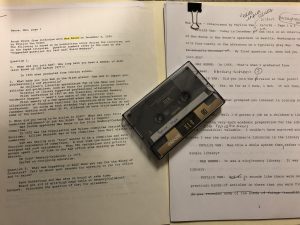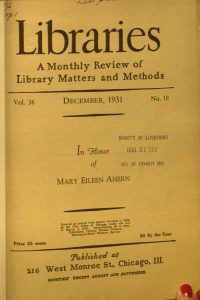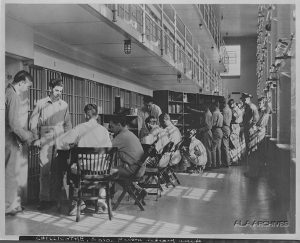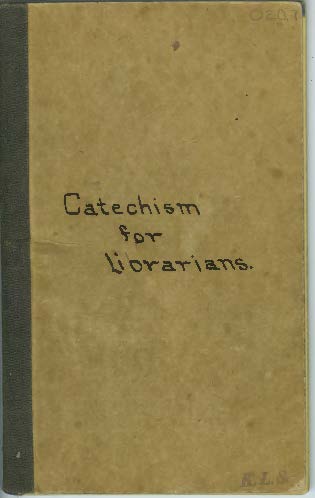Starting early this fall, as the ALA Archives Graduate Assistant, I had the privilege of transcribing the oral history of Eldon Ray James, retired librarian, formerly incarcerated person, and advocate for the rights of incarcerated people. After transcribing over three hours of dialogue between Ray James and Deputy County Librarian at the Alameda County Library, Deb Sica, I believe I just got paid to listen to the most interesting story I’ve ever heard.
Ray James, before becoming a figurehead in the movement to secure information access for incarcerated people in the United States, served in Germany during the Vietnam War, ran for office in the Colorado House of Representatives, won awards for his amazing journalism in multiple publications, and was reportedly a part of the (unconfirmed) first interracial double date in Baylor University history. He did all of this before being sentenced to 70 months in prison for aiding in the distribution of cocaine and methamphetamines. Continue reading “Eldon Ray James Oral History”




